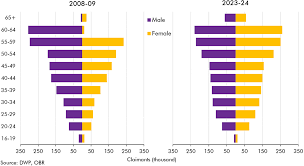Understanding the UK State Pension in 2023

Introduction
The UK State Pension is a crucial aspect of financial security for millions of retirees across the country. As the government continues to make adjustments to the pension system, it is essential for individuals approaching retirement age or currently receiving their pension to stay informed about any changes that could affect their income and lifestyle. In 2023, several key updates have been introduced, making it important for stakeholders to understand their implications.
Latest Updates to the UK State Pension
In April 2023, the UK government announced an increase in the state pension rates, which has been welcomed by many as it aims to help retirees cope with rising living costs. The basic State Pension has increased to £141.85 per week, while the new State Pension now stands at £203.85 per week. This increase aligns with the government’s commitment to the ‘triple lock’ policy, which guarantees that the state pension will rise by whichever is the highest among inflation, earnings growth, or 2.5%.
Moreover, new eligibility criteria have been introduced, focusing on individuals who have sufficient National Insurance contributions. Current legislation requires at least 10 qualifying years to receive any State Pension, with 35 qualifying years needed for the full amount. This emphasis on National Insurance contributions reinforces the importance of consistent work history for eventual pension benefits.
Impact of Cost of Living on Pensions
The rise in the state pension is especially significant in light of the ongoing cost of living crisis in the UK. As energy prices and food costs continue to soar, many retirees are finding it increasingly difficult to manage their budgets. The increase in the state pension provides some relief, but experts warn that it may not be sufficient to fully offset these rising expenses.
Additionally, with an ageing population, the sustainability of the pension system is under scrutiny. The government is exploring options such as increasing the retirement age to ensure that the state pension can continue to be funded for future generations.
Conclusion
The UK State Pension remains a vital source of income for millions, but individuals must keep abreast of changes and understand how these may affect their future. While recent updates have provided some financial relief, ongoing economic challenges highlight the need for individuals to plan accordingly for retirement. As discussions about pension reform continue, it will be essential for stakeholders to advocate for the sustainability of the system, ensuring that it can support not only current retirees but also future generations facing potential financial uncertainty.
